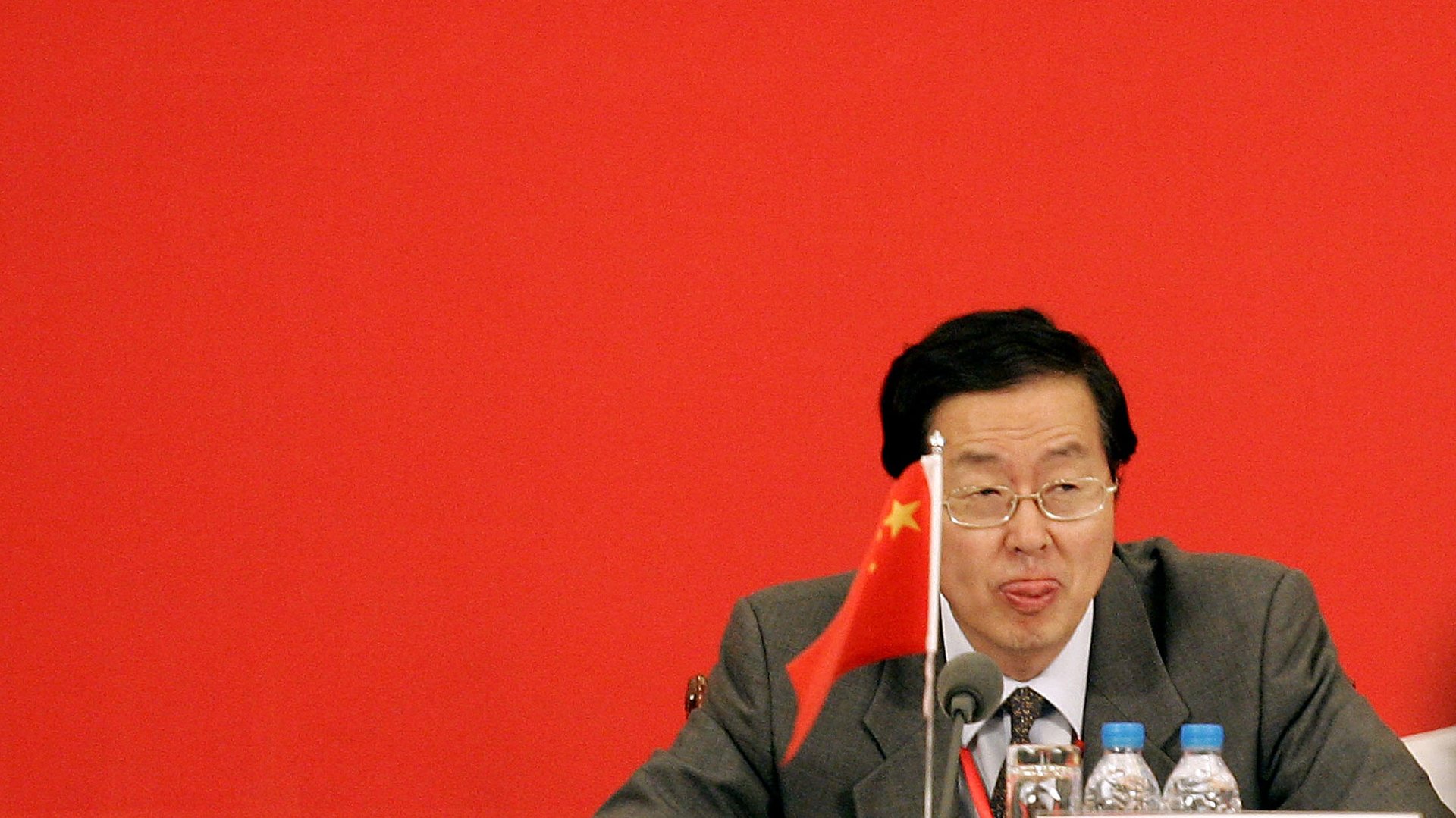Why the world’s second-most-powerful central banker isn’t losing his job after all
So Zhou Xiaochuan, who was supposed to retire soon as head of the People’s Bank of China (PBoC), the central bank, is staying put—or so government sources say. (We find out for real likely before the 18th National People’s Congress convenes on March 5.) Here’s what you need to know:


So Zhou Xiaochuan, who was supposed to retire soon as head of the People’s Bank of China (PBoC), the central bank, is staying put—or so government sources say. (We find out for real likely before the 18th National People’s Congress convenes on March 5.) Here’s what you need to know:
He’s good at central banking. Since taking the PBoC reins in 2002, Zhou has managed to keep China from imploding during the financial crisis. He’s also averted economic doom that could have been caused by the often-overheating property market, politically combustible inflation problems and China’s debt-crazed provincial governments, to name a few. And that’s with the limited monetary tools at his disposal. (Of course, the PBoC is not independent. But Zhou can still comfortably take credit for all that.)
He’s already reformed a lot. He has loosened up the exchange rate regime, begun liberalizing interest rates, and opened the capital account to include things like yuan settlement offshore. And that’s not even mentioning all the financial reforms that he hasn’t directly overseen.
Keeping him on is a sign the new leadership wants reform. Though Zhou’s already the legal age of retirement and his resignation was assumed inevitable, he beat out the other competitors for the job, several of whom were more conservative. Mind you, Zhou was not a popular choice for the PBoC chairman back in 2002, and rumors of his imminent sacking (paywall) swirled during the nadir of the global financial crisis. And he probably still isn’t popular, at least among the more populist faction, which is generally suspicious of anything that smacks of free-market capitalism. The only reason the new leadership would, despite all this, keep its most capable and proven reformer, is because it needs him to, well, reform.
But that probably means its own economic agenda will come first. The new administration’s cornerstone policy is wealth redistribution, which is a colossal task involving pretty much every element of China’s economy. It’s not strictly a central bank issue. But the new leadership evidently recognizes the need to keep the economy stable as it starts adjusting the economy.
So the yuan’s not floating tomorrow. Or even any time soon. Zhou wants to free up the exchange rate, all right. But other elements needed to open up China’s capital account will come first. And removing state controls from interest rates, banking sector reform (link in Chinese with paywall) and letting Chinese people trade foreign currency more freely, among other things, would take several years even in less turbulent economic times.
And it won’t soon become a global reserve currency, either. First it needs to tick off the aforementioned chores. True, Zhou famously argued (pdf) in favor of replacing the dollar with a global currency. But yuan “internationalization” is probably more important as a politically expedient “Trojan horse” (pdf, p.9) for reformers like Zhou to sneak capital-account liberalization past conservative leaders. And the fact that Xiao Gang, who currently runs the bank leading internationalization, was and reportedly remains the favorite to be Zhou’s eventual successor suggests that emphasis on getting other countries to stash away redbacks will continue apace.